Enhancing People’s Lives
Learn how we are changing lives for the better
Our belief, that freedom of movement drives human progress, fuels our passion for designing smart vehicles for a smart world. With urban transportation becoming increasingly congested and inefficient, we’re already developing the mobility solutions of tomorrow.

China, India, France and the U.K. are among the nations planning to phase out vehicles powered by internal combustion engines and fossil fuels by 2040. With the inevitable increase in demand for new, cleaner transportation, automakers need to start delivering affordable alternatives at scale.
We will feature hybrid and fully electric models in our electrified vehicle lineup by 2022
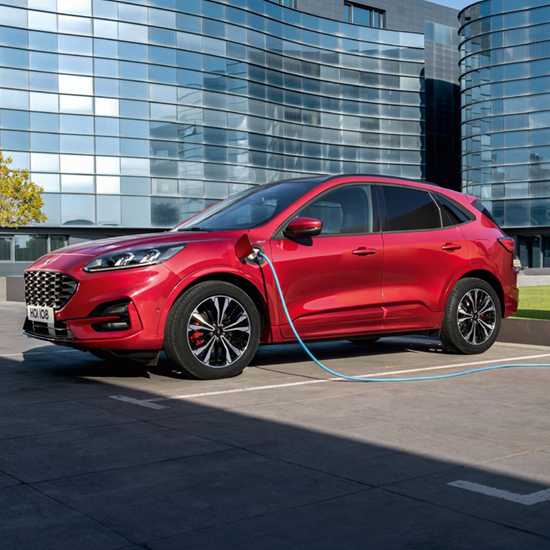
As part of our vision of the future, we are investing $11 billion in electrified vehicles (EVs) over five years. We plan to electrify our most popular nameplates, including a Mustang-inspired, fully electric performance utility and the Ford F-150. We are also participating in initiatives to develop charging infrastructure and making EV ownership a more desirable and rewarding experience.
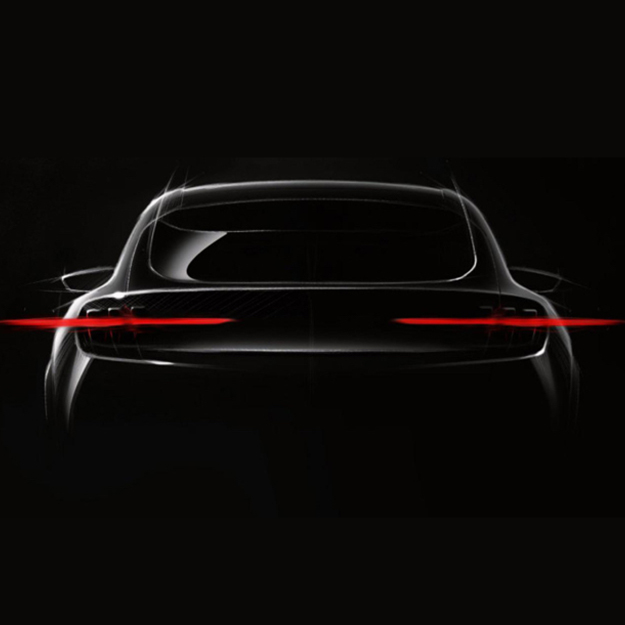
See how we are scaling up electrification
Our approach to electrification includes electrifying our most popular SUVs, commercial vehicles and trucks, creating a profitable portfolio that meets our customers’ evolving needs and preferences, including hybrid and fully electric models by 2022.
We’re also helping make charging an effortless experience for EV drivers, at home and on the road. In Europe, we are a part of the IONITY joint venture for high-powered public charging, and in the U.S., we are developing an extensive set of charging solutions to support our customers.
Reflecting the importance of collaborations in moving our industry forward, the partnership we have established with Volkswagen will explore possible synergies, including EVs.
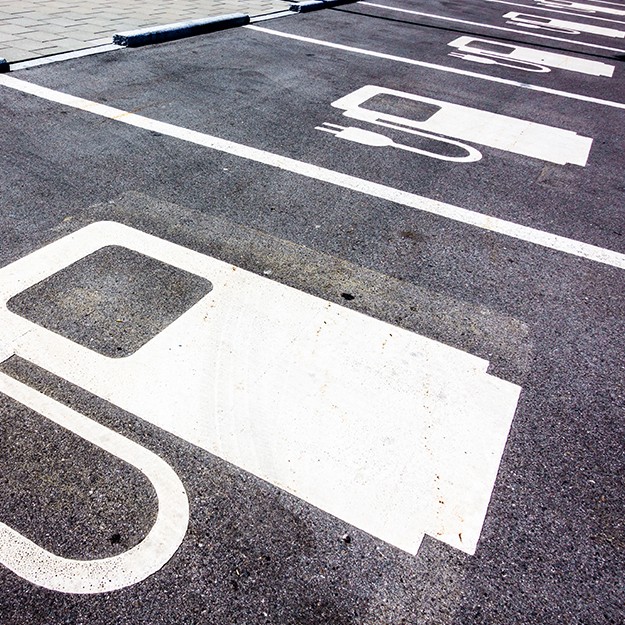
We are investing $740 million to restore Michigan Central Station and several surrounding properties to create a hub of innovation in Corktown, Detroit’s oldest neighborhood. This will bring together thousands of Ford employees, entrepreneurs and partners to shape the future of mobility. The area will serve as a catalyst for new ideas and a proving ground for self-driving vehicles, connectivity and new mobility solutions.
We plan to transform the long-abandoned train station to its original grandeur and preserve the cultural heritage of existing neighborhoods, while creating modern and sustainable mixed-use spaces to foster innovation and community engagement.
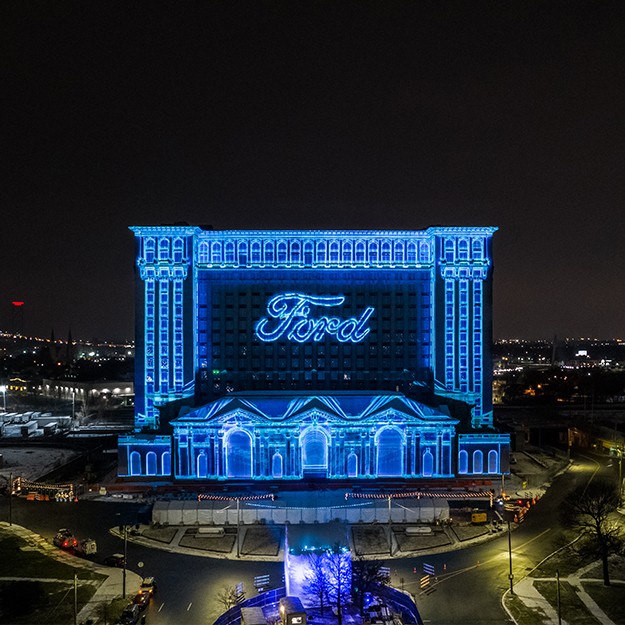
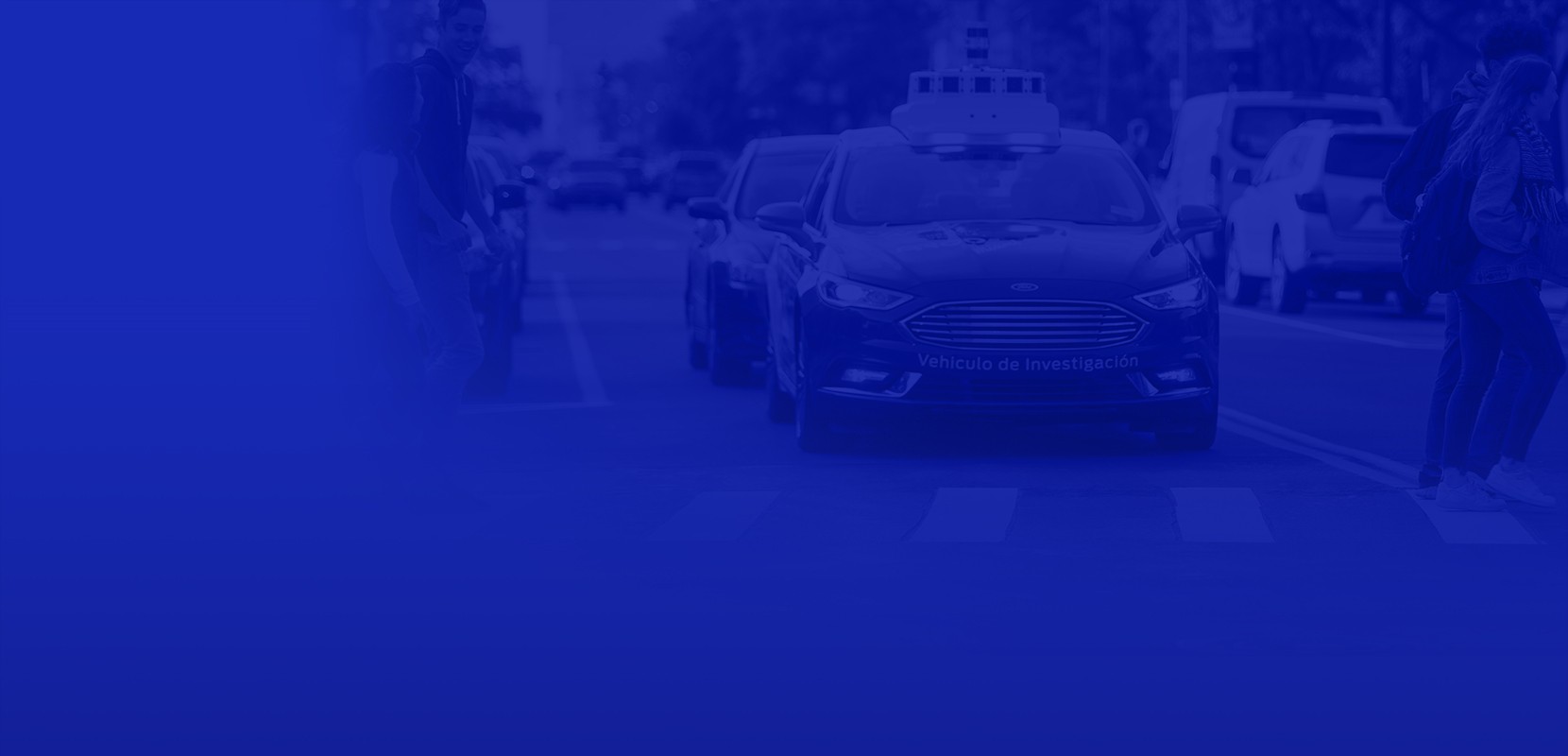
In today’s increasingly urbanized environments, self-driving vehicles promise new levels of accessibility and convenience. We believe that the central challenge in the development of self-driving vehicles isn’t the technology, but building consumer trust in the safety, reliability and experience it will enable.
Our goal is to launch self-driving commercial vehicles at scale by 2021
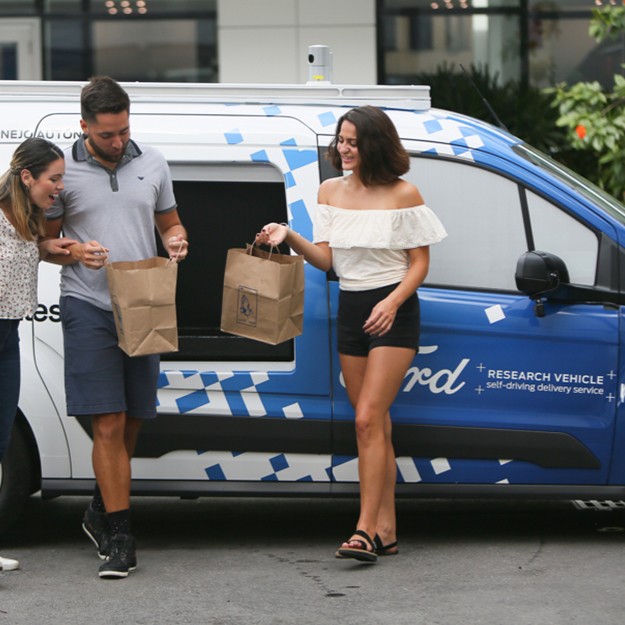
Launching commercial self-driving vehicles at scale is a key element of our Mobility plan. Much of the technology already exists, but we can’t implement it without understanding how it will transform people’s lives. We’re working closely with customers, industry and government partners to apply self-driving vehicle technology, and we’re testing them on the streets of several U.S. cities to ensure people remain the focus when we design our vehicles. We expect to invest $4 billion in our technology efforts through 2023.
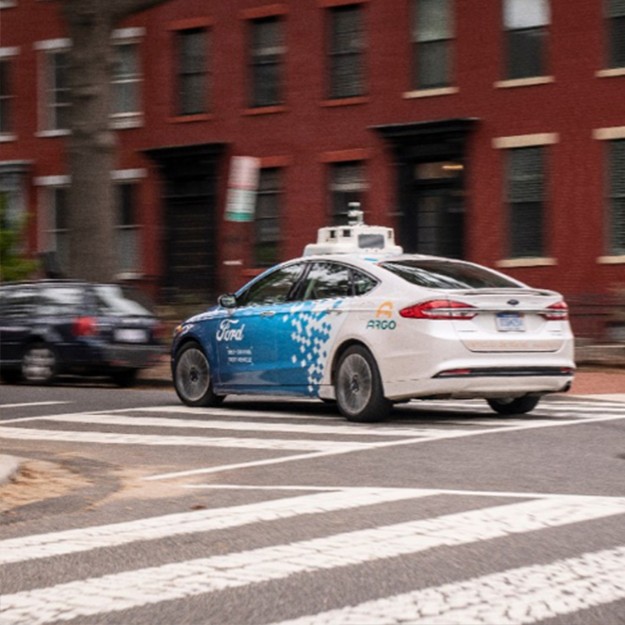
Find out how we’re developing and testing self-driving vehicle technology
We’ve teamed up with several commercial partners in Miami to test customer interaction with self-driving vehicles. Keeping the customer at the center of our vehicle and service developments, we’re working with Walmart to trial door-to-door deliveries using self-driving vehicles. Another project, with Postmates, is testing new technology designed to keep individual items secure on a delivery route.
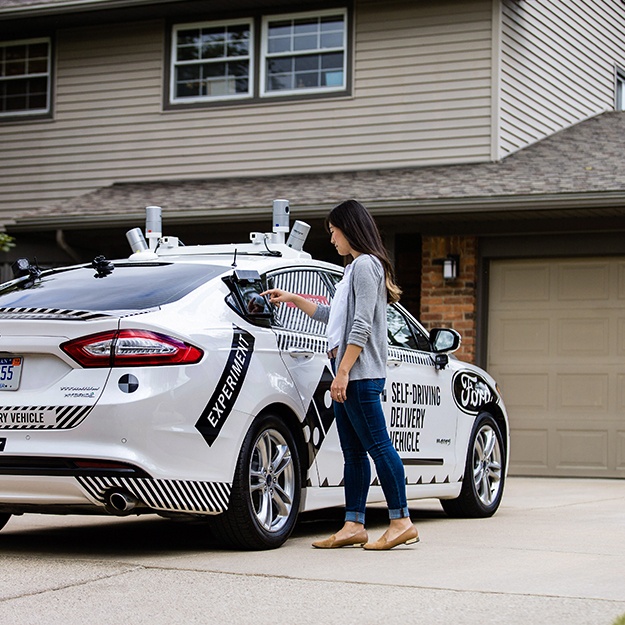
We work with a number of city authorities to understand how self-driving vehicles might help residents move more freely. In 2019, Washington, D.C. became our latest real-world testbed for self-driving vehicles in the U.S., joining Pittsburgh, Detroit and Miami. With our partner Argo AI mapping the city, we plan to deploy a fleet of test self-driving vehicles across all eight of the city’s neighborhoods.
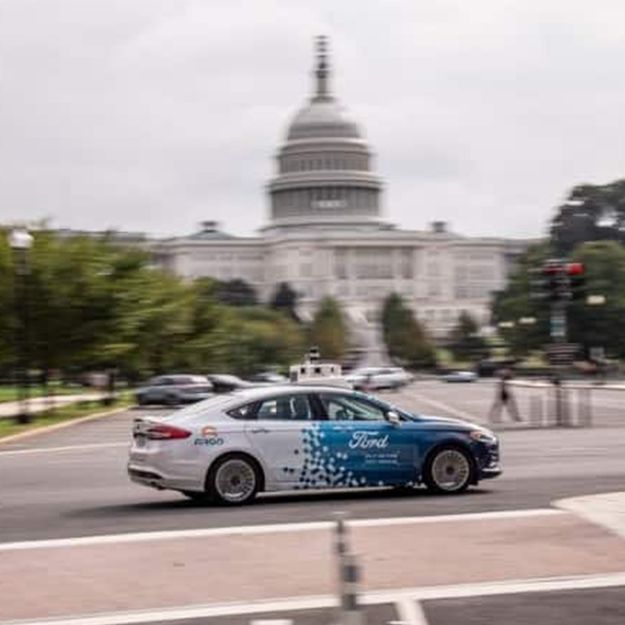
We currently offer customers a wide variety of driver assist technologies that alert them to potential collisions and make routine tasks easier. As well as improving safety today, as demonstrated by our safety ratings in Public Domain programs, many of these automated features are the building blocks for a safe, autonomous future. Our safety assessment report for self-driving vehicle development, A Matter of Trust (pdf, 35MB), outlines the research we have conducted with public, private and academic partners into the safety issues associated with connected self-driving vehicles and infrastructure.

Collectively, we already spend an estimated 160 million hours a year sitting in traffic, and putting more cars on the road will only increase congestion and pollution. It’s no surprise that a new vision for urban mobility – one that revolves around the people who live and work in cities – is emerging, and many auto manufacturers are leading efforts to make it a reality.
We plan to incorporate cellular vehicle-to-everything (C-V2X) connectivity into all new Ford models from 2022
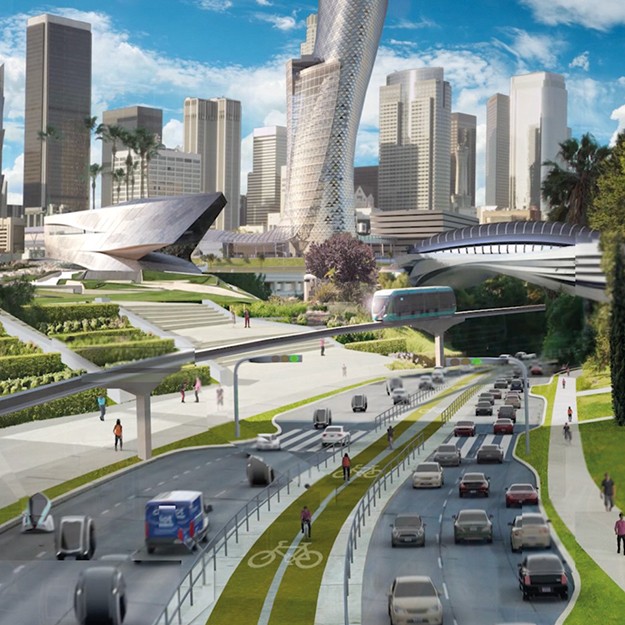
The Ford Mobility team has a belief that hasn’t changed since Henry Ford’s day: freedom of movement drives human progress. To us, the future of urban mobility lies in returning the streets to the people, by addressing climate change, air pollution and congestion through a range of smart, connected solutions.
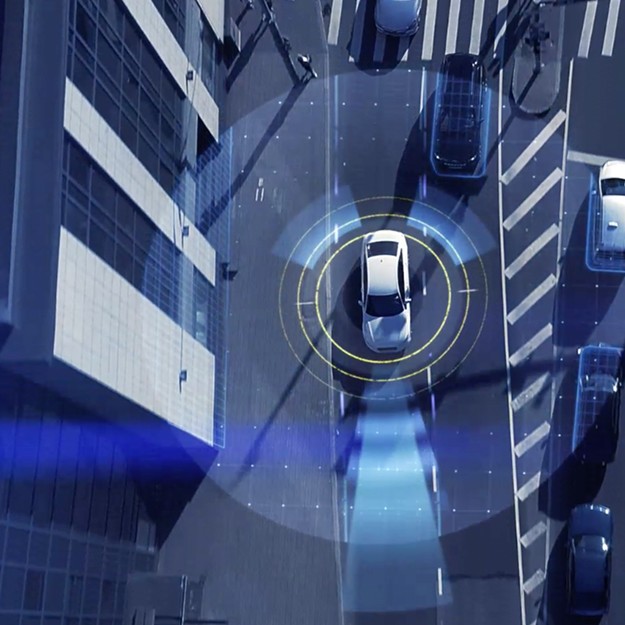
Find out how we’re reimagining the city of tomorrow
In reimagining urban transport networks, we believe that everything – parking, traffic flow, public transport, goods deliveries – can be radically improved to reduce congestion and to transform roads into more public spaces.
To enable services and apps to communicate digitally with vehicles and, eventually, the road itself, Ford-owned Autonomic has developed the Transportation Mobility Cloud. This open-source platform will “join up” smart transport options – bikes and scooters, self-driving vehicles, public transit and ride-sharing services, as well as cars – so that we can navigate the cities of tomorrow more efficiently and sustainably.
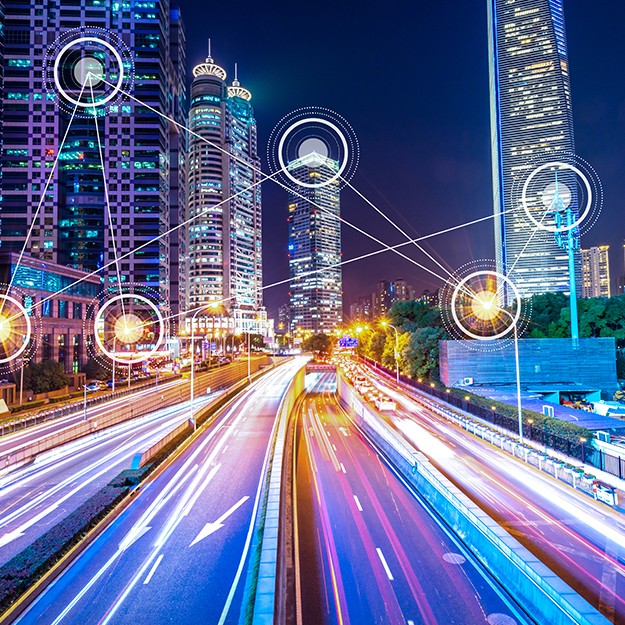
Reflecting the pace and dynamic nature of modern mobility, we’ve acquired San Francisco-based electric scooter company Spin. Extending its existing operations in three U.S. cities and university campuses, we plan to deploy fleets of zero-emission two-wheelers in 100 locations by 2020, making those first and last miles of a journey more efficient and sustainable. The relationships we’ve already built with municipal authorities in securing the necessary permits may also help us roll out self-driving vehicles further down the line.
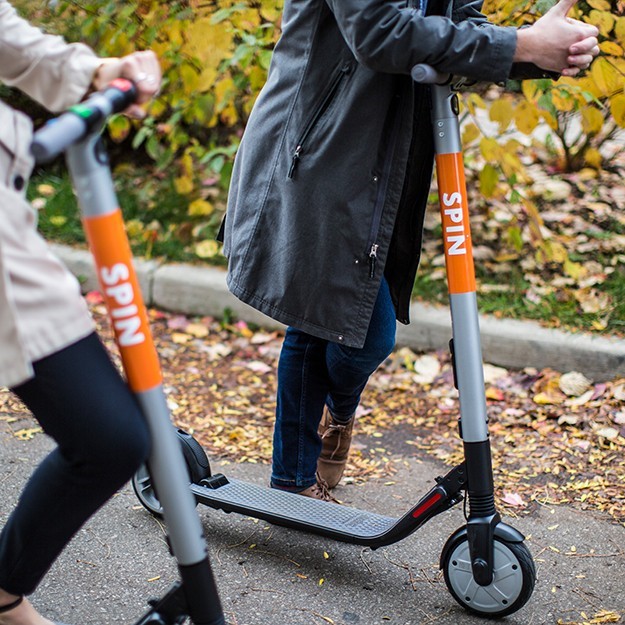
To drive dialogue and address real-world issues, our City Solutions team has launched the latest series of our City:One Challenge with the first of this year’s locations: Indianapolis. Through the competition, city officials and residents collaborate to solve their own community’s unique mobility challenges, with $100,000 available to help fund pilot projects. More cities will be announced in the coming months.
The 2018 winners, from Pittsburgh, Miami-Dade County and Grand Rapids, have now received funding to pilot their ideas, which range from providing safe transport for people working night shifts to an app that improves school drop-offs and pick-ups for parents, teachers and children.
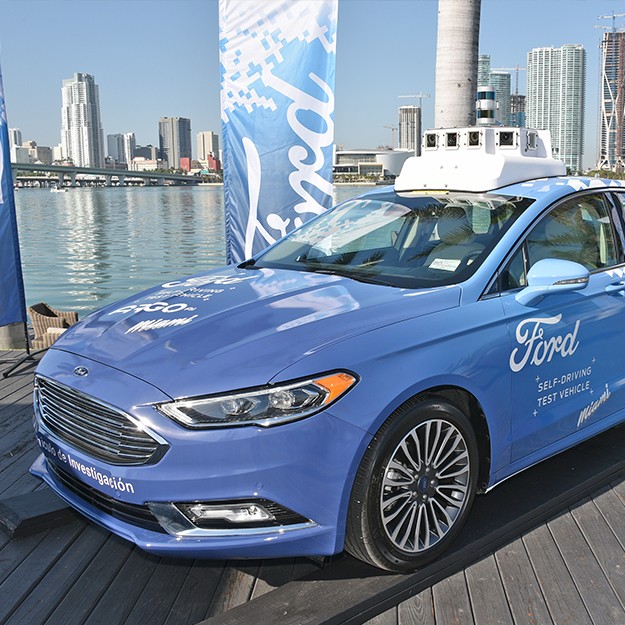
Watch a recap of our 2018 City:One Challenge
Through our work in innovating future motion, we are contributing to the following UN SDGs:




Ford Media Center
A Matter of Trust: Ford Releases Safety Assessment Report for Self-Driving Vehicle Development
Medium
Let’s Go for a Spin: Ford Buys Scooter Company to Provide Customers a First-Last Mile Solution
A Monumental Moment: Our Self-Driving Business Development Expands to Washington, D.C.
Ford Expands City:One Challenge Program to Austin, Detroit and Indianapolis

